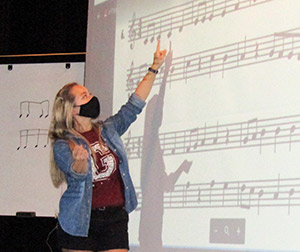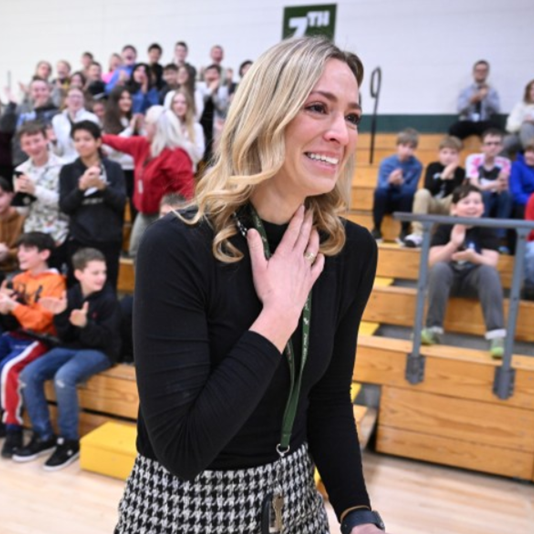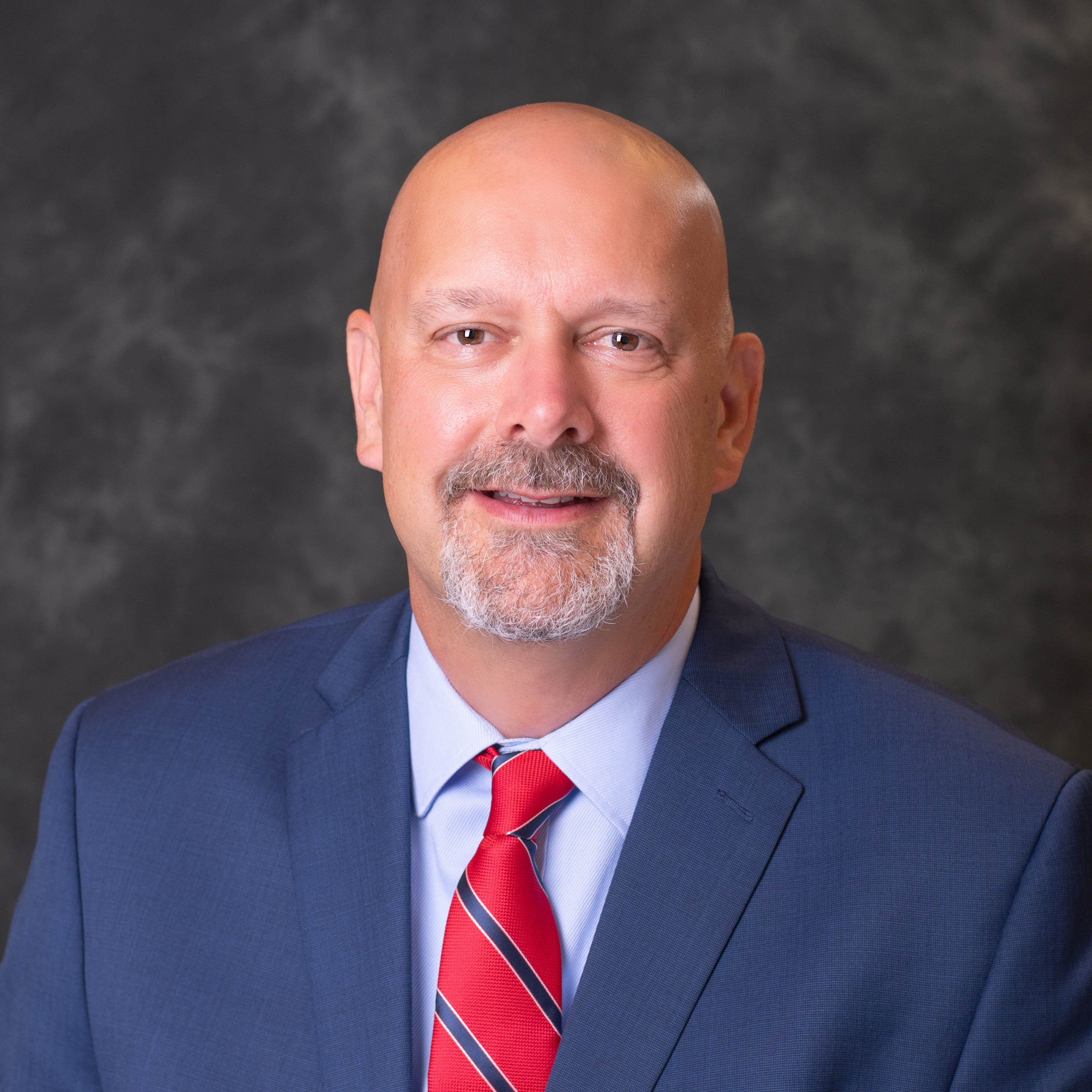Choir Teacher Surprised by Students on The View

MEA member Rachel Niewiada already knew her Grandville Middle School choral music students were wonderful singers, but after she appeared last week on the ABC television program The View the seven-year teacher now knows they’re incredible actors as well.
Niewiada says she had no idea several of her students would appear in taped interviews to talk movingly about her impact on their lives during a segment honoring her on the daytime talk show.
“They were such great secret keepers!” she declared in an interview after the episode aired. “I was just in complete awe and so full of gratitude for my students and their willingness to be interviewed and speak on national TV.”
In the segment, after talking with The View hosts Sara Haines and Sunny Hostin about how she has adjusted to teaching during the pandemic, Niewiada was surprised with a video montage of her students sharing touching reflections spliced with images of her at work.
Niewiada can be seen in a split screen reacting with surprise, smiles, and tears as students talked about how her cheerful presence and warm acceptance make each of them feel important and special.
“I just can’t put into words how much I appreciate everything she’s done for everyone,” said one boy identified as Aaron, 13. “She’s just been so impactful on my life, and I don’t know what I would do without being in her class. You always make people feel happy and positive about themselves. You’re just amazing.”
The segment concluded with celebrity singers Ruben Studdard and Clay Aiken – of American Idol fame – performing a medley of Christmas tunes. Midway through the arrangement, two dozen of her students slowly joined in singing with the stars through individual Zoom screens.
Asked by a show host how she felt at the end of the segment, Niewiada said she was overwhelmed. “Crying on national TV was not what I planned to do today,” she quipped.
Niewiada learned just after Thanksgiving that producers from the show wanted to feature her efforts to go “above and beyond” for students during the pandemic. She was interviewed ahead of the air date, but little did she know so were several of her students.
“When I shared the good news with them that I was going to be on the show, even my eighth graders who knew they were also going to be on the show acted so shocked, like ‘What?’”
She later found out that two teaching colleagues and a secretary helped to select and prepare students for the View appearance. “I’m so grateful for the staff and the team I have at Grandville,” she said.
Like band, art, theater, and physical education, choir class provides an important outlet for students especially at a time when the global coronavirus pandemic is exacerbating mental health issues for many people, Niewiada said.
“Kids are looking for something that they can cling to, something they can use to express themselves,” she said. “Getting kids up and moving for stretches and vocalizing and focusing on our breathing helps put everything else at bay, so they kind of forget what they’re worried about. It’s a nice way to release everything they’ve been holding in.”
Niewiada said she was “super distraught” before the school year began when her principal said although the district would have in-person learning in the fall, it wasn’t clear if students could be allowed to sing because the virus spreads through aerosols. She did research to determine how to safely conduct class.
To figure out what to do, Niewiada used a study on performing arts and the coronavirus from the University of Colorado which detailed how to mitigate risk – by ensuring adequate air flow and replacement, spacing students more than six feet apart, singing for no more than 30 minutes at a time, and requiring masks while singing.
Class moved from the choir room to the auditorium where the air circulation is better and students could space far apart.
“I checked with my school’s maintenance department, who put me in touch with the engineer of our middle school auditorium and he was able to check the ACH – which is the air change rate per hour – to make sure it fit with the recommendation from the University of Colorado study.”
Students quickly adapted to the changes despite the fact that masking requires greater voice projection and more distancing apart creates a larger “bubble” of space to fill between each of them and the other singers.
Some students found the bigger bubble allowed them to more distinctly hear their own voices – and correct pitch problems – which increased their confidence. Others found it made them more self-conscious and reticent about performing, Niewiada said.
“It’s harder when you’re further spread out because you feel like you’re the only one singing, so that was definitely challenging for some of my newer students to choir specifically,” she said.
Limiting singing time to 30 minutes also leaves about one-third of class time for something else. Niewiada’s mother was a career elementary school teacher in Grand Rapids, so she always knew the importance of building relationships, and this year Niewiada decided to focus on strengthening connection between her and students and between students and each other.
She spends much of the extra class time on sharing good news and fostering conversation among students so they feel less isolated. As in many districts, the rapid rise in COVID-19 cases forced her suburban Grand Rapids district to go virtual for several weeks in November and December.
“The kids and I are super resilient and flexible, so we make it work either way,” Niewiada said.
Niewiada also surveys students once a month to see how they’re doing, whether they need anything, or if there are any issues they would like to talk about that they don’t feel comfortable bringing up in front of others. She responds personally to students who are struggling.
Perhaps the extra difficulty and added focus on caring and connection this school year made it especially emotional to hear her students sing her praises and perform beautifully on national television, Niewiada said.
“I do get email responses as a thank you, but to hear my kids say it out loud and to see their faces when we’ve been wearing masks for 12 weeks of the year, it was a beautiful gift.”



